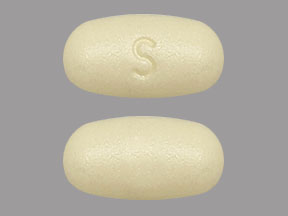
Colestid Coupons & Savings Card – Discount Prices from $47.02
Brand for: Colestipol
My prescription
Edit
1GM, Colestipol (180 Tablets)
Select pharmacy

CVS
$106.00
COUPON PRICE
Walgreens
$47.02
COUPON PRICE
Albertsons
$135.31
COUPON PRICE
Walmart
$161.07
COUPON PRICEColestid savings card
Show this card to your pharmacist
Walgreens
$47.02
BIN
ID
PCN
GRP
015995
LHKPY380754
GDC
DR33
Powered by
Related bile acid sequestrants prescriptions
More prescriptions for high cholesterol
Related bile acid sequestrants prescriptions
More prescriptions for high cholesterol
Price history for Colestid (brand) & Colestipol (generic)
180 Tablets, 1GM
Average retail price for Colestid
Average retail price for Colestipol
Average SaveHealth price for Colestipol
Our price history data is based on aggregated prescription data collected from participating pharmacies in America. Our prescription data updates daily to reflect the latest price changes. If you notice a missing data point, it means there wasn't sufficient data available to generate a monetary value for that date.
Over the last 12 months, the average discount price of Colestid is $77.95 using the SaveHealth savings card. That's an average savings of 79.10% on Colestid with our discount card.
*Retail prices are based on pharmacy claims data, and may not be accurate when we don't have enough claims.
Colestid (Colestipol) dosage forms
Dosage Quantity Price from Per unit 1GM 180 Tablets $106.00 $0.59 1GM 1 Tablet $3.32 $3.32 1GM 30 Tablets $27.16 $0.91 1GM 120 Tablets $79.44 $0.66
| Dosage | Quantity | Price from | Per unit |
|---|---|---|---|
| 1GM | 180 Tablets | $106.00 | $0.59 |
| 1GM | 1 Tablet | $3.32 | $3.32 |
| 1GM | 30 Tablets | $27.16 | $0.91 |
| 1GM | 120 Tablets | $79.44 | $0.66 |
What is the drug Colestid used for?
Colestid is used to help lower cholesterol levels in the blood. It is often prescribed to reduce the risk of heart disease and to manage high cholesterol levels when diet and lifestyle changes alone are not sufficient.
Does Colestid stop diarrhea?
Colestid, also known as colestipol, is primarily used to lower cholesterol levels. However, it can also be used off-label to treat diarrhea, particularly when the diarrhea is caused by bile acid malabsorption. It works by binding to bile acids in the intestine, which can help reduce diarrhea in such cases. It is important for individuals to consult with their healthcare provider to determine if Colestid is appropriate for their specific condition.
What are the long-term side effects of Colestid?
Long-term use of Colestid (colestipol) may lead to several side effects. These can include gastrointestinal issues such as constipation, abdominal discomfort, and bloating. There is also a potential for vitamin deficiencies, particularly fat-soluble vitamins like A, D, E, and K, due to the drug's interference with their absorption. Additionally, there may be an increased risk of developing gallstones. It is important for patients to have regular follow-ups with their healthcare provider to monitor for these potential side effects and manage them appropriately.
Is Colestid the same as cholestyramine?
Colestid and cholestyramine are not the same, but they are similar. Both are bile acid sequestrants used to lower cholesterol levels. Colestid contains the active ingredient colestipol, while cholestyramine is the active ingredient in another medication. They work in similar ways but are different compounds.
What is the generic name for Colestid?
The generic name for Colestid is colestipol.
